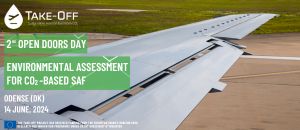An independent study published in Great Britain by the National Non-Food Crops Center (NNFCC) und the Imperial College, London, shows that natural fibre insulation materials can be produced at a reduced cost as well as providing substantial environmental benefits.
The “cradle to grave” life cycle assessment was conducted for natural fibre insulation materials including hemp/recycled cotton (Isonat) and waste sheep wool (Thermafleece). The materials studied are comparable in many environmental impact categories to materials given an A rating in the BRE Green Guide to Specification.
The study confirms that natural fibre insulation reduces global warming potential by locking up atmospheric CO2 in the fibre and binder materials and storing it during the life of the product. Following disposal by landfill or composting, only a partial release of the CO2 locked up would be expected.
Scaling up production may reduce energy requirements by 50%
UK manufacturing could play a further role in improving the environmental impact of natural fibre insulation. Scaling up production would halve the energy required for plant fibre production and manufacturing the insulation in the UK would reduce the environmental impacts from transportation.
Further ways forward are proposed for optimising the environmental profile for natural fibre insulation which would form logical next steps for this emerging industry.
Dr John Williams, NNFCC’s Technology Transfer Manager for Renewable Building Materials comments “The producers are already working on process improvements, and the findings of this study support ongoing work to increase production efficiencies and costs. Additional product developments and retailer acceptance will improve the market share of natural fibre insulation in the UK. It’s good news that this goes hand in hand with environmental benefits.”
The study is entitled “Life Cycle Assessments of Natural Fibre Insulation Materials”. It followed the principles of the ISO 14040 series of international standards for life cycle assessment. Data was obtained from insulation manufacturers to produce a transparent inventory, addressing the previous lack of independent data about their environmental impacts.
Further information
R. Murphy, A. Norton (Imperial College): Life Cycle Assessments of Natural Fibre Insulation Materials. (PDF-document, 2.2 MB) Final Report, published on 2008-02-27.
Contact
Dr. Alison Hamer
Tel.: 0044-19 04 43 51 82
(Cf. news of 2007-08-30 and 2004-04-26.)
Source
National Non-Food Crops Center (NNFCC), 2008-02-27.
Share
Renewable Carbon News – Daily Newsletter
Subscribe to our daily email newsletter – the world's leading newsletter on renewable materials and chemicals










